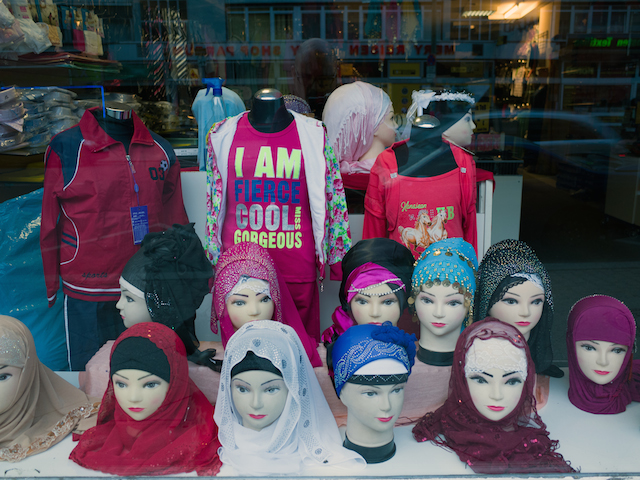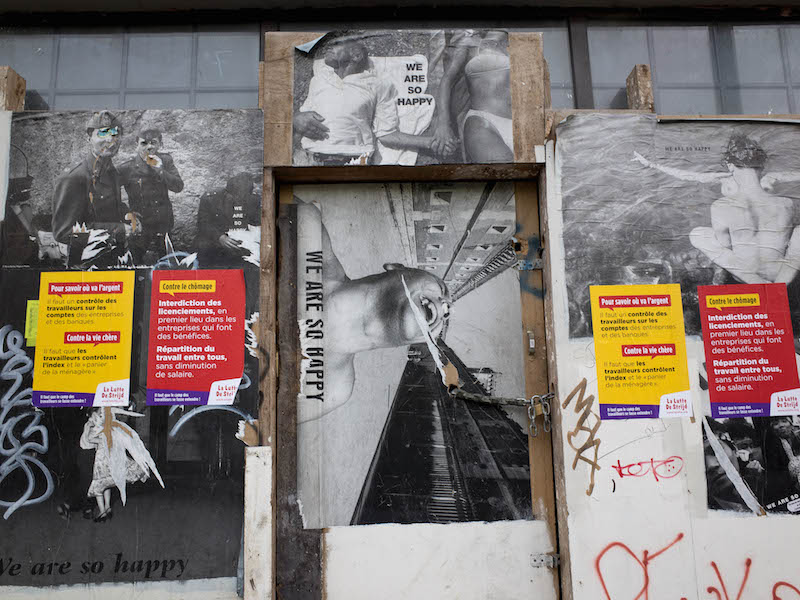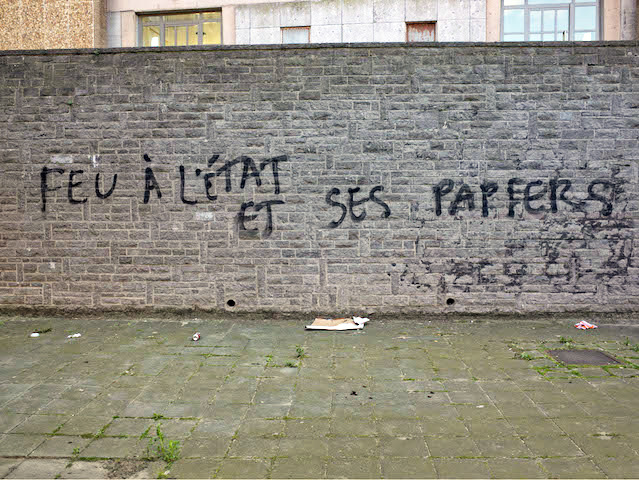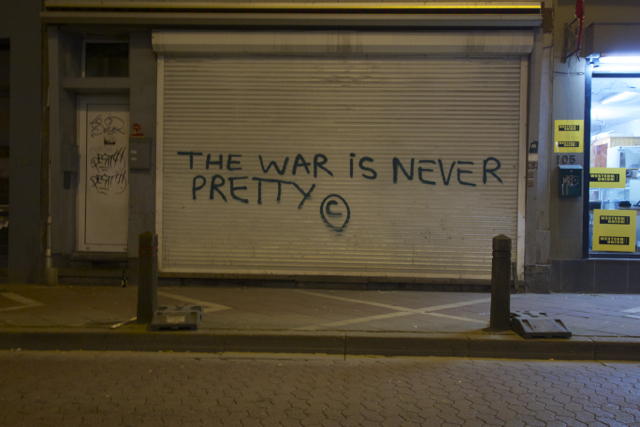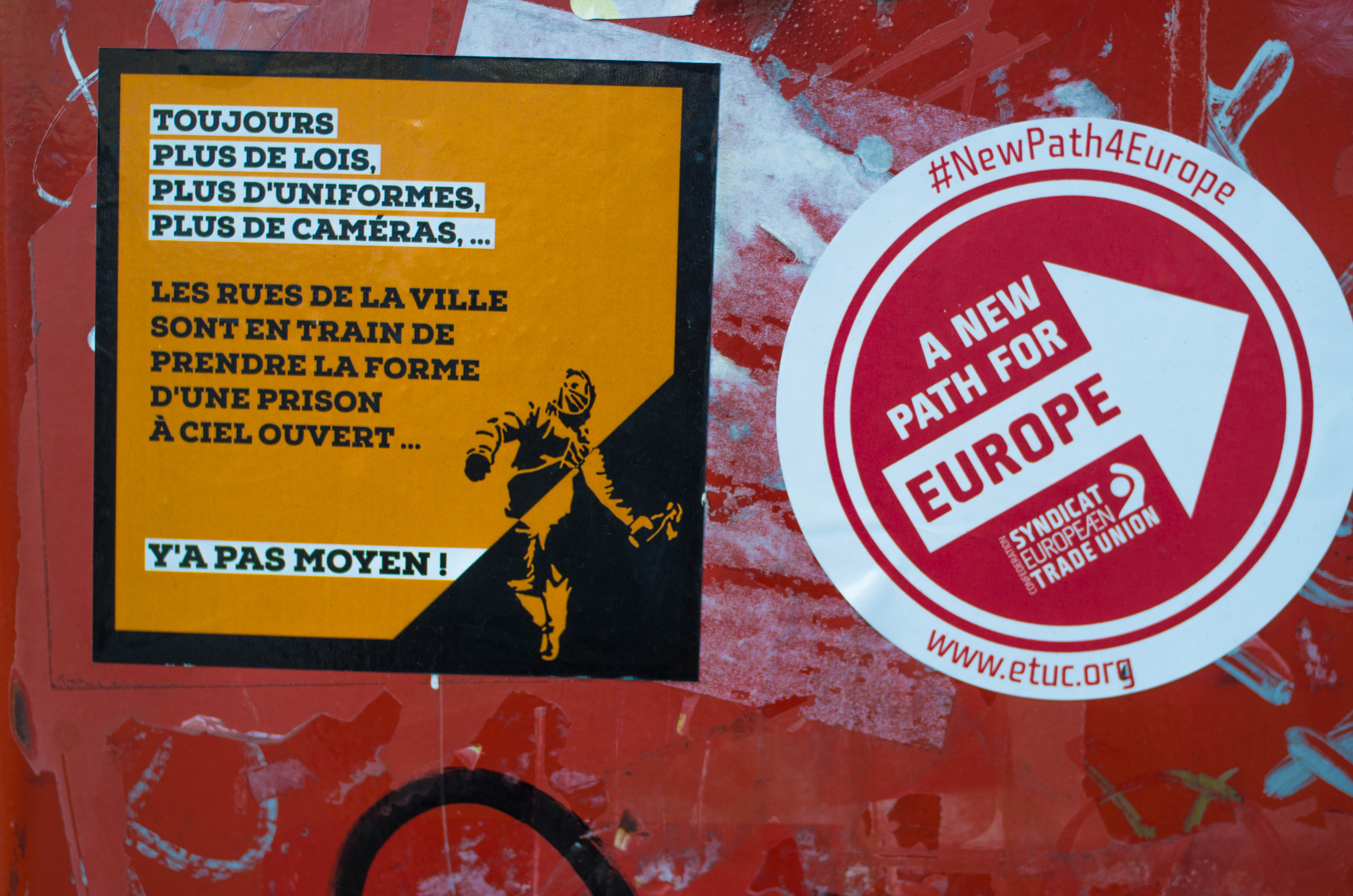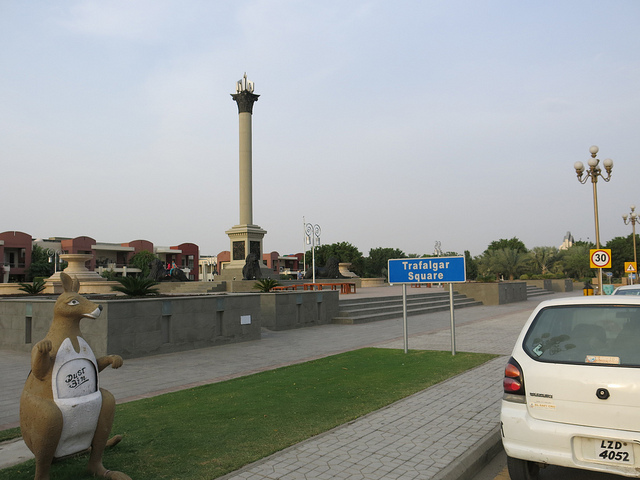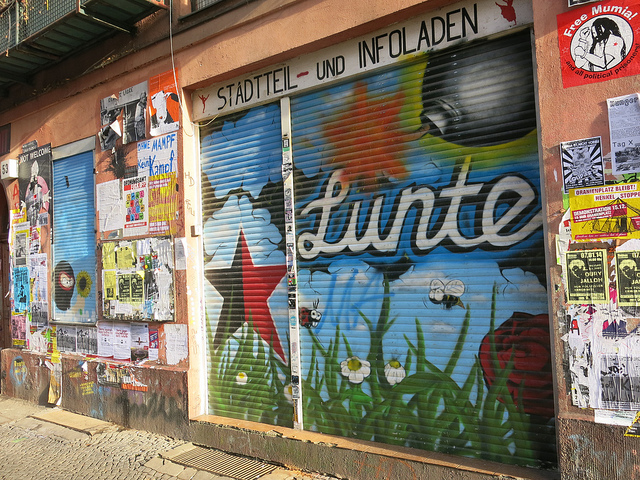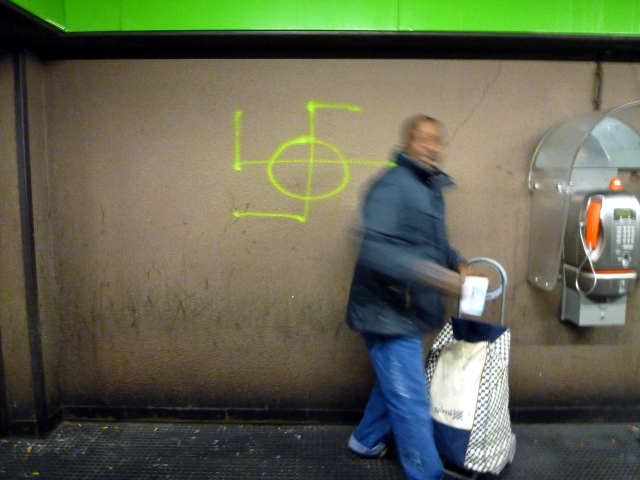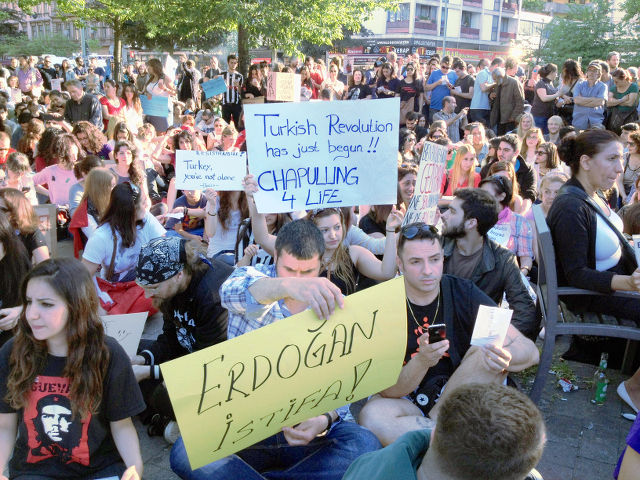Immigrant equals female. So one might be inclined to think by the significance accorded the hijab by populists. Muslim headscarves are not so much a security threat, as they are a gender-designator for outsiders. It’s pretty high concept for conservatives, for sure, but best read psychoanalytically. This is about fear. Not theory. (More…)
Documentary
Brussels without the EU. It’s a hell of a thought, particularly for the tens of thousands drawn to the city, to work for European political institutions and business. So omnipresent are Union offices and buildings that, for most visitors to the Belgian capital, they are the city. Never mind the medieval architecture, the longstanding immigrant community, and the beer and fries. (More…)
Fucked Up and Photocopied. It was an appropriate title for a book documenting the first generation of American punk flyers. Published in 2000, just as print ‘zines were giving way to online gig listings and, eventually, blogs, the coffee-table sized collection could not have been more timely. It was as though it were a concluding chapter to an era, which had not fully given way to something else yet – the Internet. (More…)
‘Gentrification’ is a relatively new word to the left. Increasingly invoked to describe the transformation of inner city neighborhoods in Europe and the United States by wealth, the term has become especially pejorative of late, given the persistence of the economic crisis. How could cities, once abandoned by the affluent for the suburbs, all of the sudden be booming again? (More…)
You don’t have to have an eye for street art, to notice. Wherever you turn, in Belgium’s capital, there are stickers, and in the poorer neighborhoods, posters, denouncing the construction of a new prison. Located in Haren, in north Brussels, the prison-to-be is the stuff of post-modern fantasy. (More…)
Whenever foreign leftists think about Italy, one of the first things that comes to mind are violent demonstrations, in big cities, like Rome, and Milan. Rarely do they imagine politics taking place outside of the major tourist hubs. It’s not surprising. One plays host to the federal government. The other, the business sector. (More…)
Bahria Town in Lahore is the tackiest place I’ve been to in Pakistan, with the possible exception of the resort town in Murree. It wasn’t necessarily bad for it, especially since the infrastructure clearly made Bahria Town a great place to live. However, it was irritating, as the child of formerly working-class parents, to see the absurd machinations of people with no idea how to spend their money. (More…)
“We can’t fire them.” For anyone who has ever worked in Italy, the complaint is a familiar one. Often proffered to British and American employees, who are used to working with at-will type contracts, where staff can be let go on a whim, there’s an air of “Why can’t we be more like you?” to the declaration, as though a lack of job security is a more natural, albeit desirable state of affairs. (More…)
Most Americans who walk around Berlin are shocked. Graffiti is everywhere: storefronts, walls, and even the sides of entire buildings. They find it surprising. After all, this is the type of thing that was crushed by aggressive policing in cities like New York during the 1980s and 1990s. (More…)
Multiculturalism isn’t an abstraction. It’s about people of different ethnic backgrounds, living together, as equals. Predicated on the idea that in an increasingly globalized world, governments must develop policies that encourage tolerance and foster integration. Initially associated with Canadian immigration policy, over the last half century, the term has become a synonym used to describe the ethnic transformation of European society. (More…)
It should have been a meme. For several months, at least, the news media could not put it down. First invoked in 2011, in reference to the 15-M movement protesting the Spanish government’s inept handling of the economic crisis, the term ‘Indignados’ became a media catch-all, used to describe European leftists, critical of Brussels-mandated austerity policies. (More…)
They came as guest workers. They came as manual laborers. They came to fill a labor shortage. You’ve heard it all before. It’s the story of Turkish immigration to Germany. The most popular one, that is. But hardly the most complex of accounts. One which, only reflects German government policy, to fuel the country’s post-war reconstruction. Having suffered nearly 4 million casualties during WWII, Hitler’s army had drained the country of its workforce. (More…)
